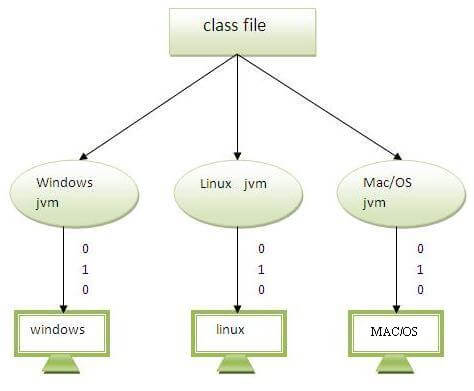By : Mungara Chirantan
Java history is interesting to know And very Easy To Unserstand. The history of java starts from Green Team. Java team members (also known as
Green Team), initiated a revolutionary task to develop a language for digital devices such as set-top boxes, televisions and many more .
For the green team members, it was an advance concept at that time.
But, it was
suited for internet programming. Later, Java technology as
incorporated by Netscape.
Currently lava use many platform like internet programming, mobile devices, games, e-business solutions etc
There are given the major points
1)
James Gosling,
Mike Sheridan, and
PatrickNaughton initiated the Java language project in June 1991. The small team of sun engineers called
Green Team .
 |
| James Gosling |
2) Originally designed for small, embedded systems in electronic appliances like set-top boxes.
3) Firstly, it was called
"Greentalk" by James Gosling and file extension was .gt.
4) After that, it was called
Oak and was developed as a part of the Green project.
Why Oak name for java language?
5) Why Oak? Oak is a symbol of strength and choosen as a national tree of many countries like U.S.A., France, Germany, India etc.
6) In 1995, Oak was renamed as
"Java" because it was already a trademark by Oak Technologies.
Why Java name for java language?
Resign is :
Why they choosed java name for java language?
The team
gathered to choose a new name. The suggested words were "dynamic",
"revolutionary", "Silk", "jolt", "DNA" etc.
They wanted something that reflected the essence of the technology:
revolutionary, dynamic, lively, cool, unique, and easy to spell and fun
to say look like interesting.
According to James Gosling "Java was one of the top choices along with Silk". Since java was so unique, most of the team members preferred java And suggested by James Gosling.
Java is an island of Indonesia where first coffee was produced (called java coffee).
Notice that Java is just a name not an acronym.
Originally developed by James Gosling at Sun Microsystems (which
is now a subsidiary of Oracle Corporation) and released in 1995.
In 1995, Time magazine called Java one of the Ten Best Products of 1995.
JDK 1.0 released in(January 23, 1996).
Java Version History ?
As given bellow :-
- JDK Alpha and Beta (1995)
- JDK 1.0 (23rd Jan, 1996)
- JDK 1.1 (19th Feb, 1997)
- J2SE 1.2 (8th Dec, 1998)
- J2SE 1.3 (8th May, 2000)
- J2SE 1.4 (6th Feb, 2002)
- J2SE 5.0 (30th Sep, 2004)
- Java SE 6 (11th Dec, 2006)
- Java SE 7 (28th July, 2011)
- Java SE 8 (18th March, 2014)
 Java code can be run on multiple platforms
Java code can be run on multiple platforms 
